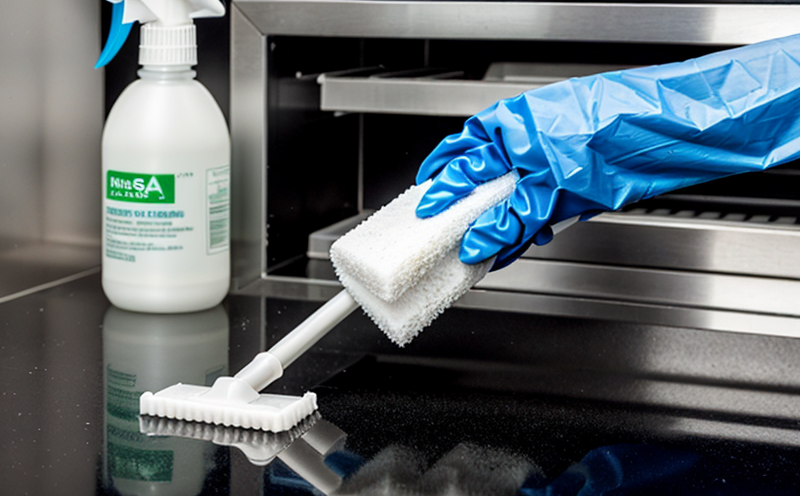EN 12791 Surgical Hand Rub Testing for Plastic Dispensers
The EN 12791 standard is a crucial benchmark in the healthcare industry, specifically addressing the testing of plastic dispensers used for surgical hand rub. This service ensures that these dispensers meet stringent hygiene and performance requirements to prevent contamination during surgical procedures.
The primary focus of this test is to evaluate the durability, integrity, and effectiveness of the dispenser under conditions similar to those encountered in a real-world surgical environment. The testing process involves subjecting the plastic material to repeated cycles of filling with alcohol-based hand rubs, dispensing, and drying. This cyclic loading simulates the actual usage patterns, ensuring that the dispenser remains functional over extended periods.
One of the key aspects of this test is the assessment of how the plastic materials withstand the corrosive effects of ethanol-based solutions commonly used in surgical hand hygiene protocols. The standard also considers the potential for cracks or deformations that could compromise the integrity of the dispenser and, consequently, the sterility of the hand rub within.
The testing procedure involves several stages, including initial cleaning of the dispensers to ensure a baseline condition, followed by repeated cycles of filling, dispensing, and drying. After each cycle, the dispensers are visually inspected for any signs of damage or degradation. Following these mechanical stresses, the plastic components undergo chemical resistance tests to evaluate their integrity against ethanol and other solvents.
The testing apparatus typically includes a specialized machine capable of simulating the operational conditions of the dispenser, such as the force applied during filling and dispensing, and environmental factors like temperature variations. This ensures that the test results accurately reflect real-world performance under various conditions.
The acceptance criteria for this test are based on the integrity and functionality of the dispenser after undergoing the prescribed cycles. Successful completion of these tests guarantees that the plastic dispensers meet the highest hygiene standards required in a surgical setting, minimizing the risk of cross-contamination and ensuring the effective delivery of hand rubs.
Applied Standards
The EN 12791 standard is part of a broader framework of European norms that emphasize the quality and safety of medical devices. It specifically addresses the testing requirements for plastic dispensers used in the application of surgical hand rubs, which are critical components in preventing infections during surgical procedures.
Other related standards include EN ISO 20692-1:2008, which provides a general framework for the design and manufacture of medical devices, including those used in hygiene applications. Additionally, EN ISO 14971 outlines risk management practices that are essential for ensuring the safety of these products.
These standards collectively ensure that all components involved in surgical hand hygiene meet rigorous quality requirements, enhancing patient safety and reducing the incidence of healthcare-associated infections.
Why Choose This Test
This test ensures compliance with international standards, which is crucial for regulatory approval and market access. Compliance enhances brand reputation and trust among end-users and stakeholders.
The rigorous testing process identifies potential issues early in the product development cycle, reducing the risk of costly reworks or recalls later on.
By using this test, manufacturers can demonstrate their commitment to quality and safety, which is especially important in high-risk sectors like healthcare.
Customer Impact and Satisfaction
Satisfied customers who use these dispensers know that they are contributing to infection control efforts, thereby enhancing patient outcomes and satisfaction levels.
The reliability of the dispensers ensures consistent performance, which is critical in high-stakes environments like operating rooms. This consistency leads to higher customer confidence and trust.
Customers benefit from a safer work environment as the rigorous testing reduces the risk of cross-contamination. This not only protects patients but also healthcare workers, leading to improved overall satisfaction across the board.





